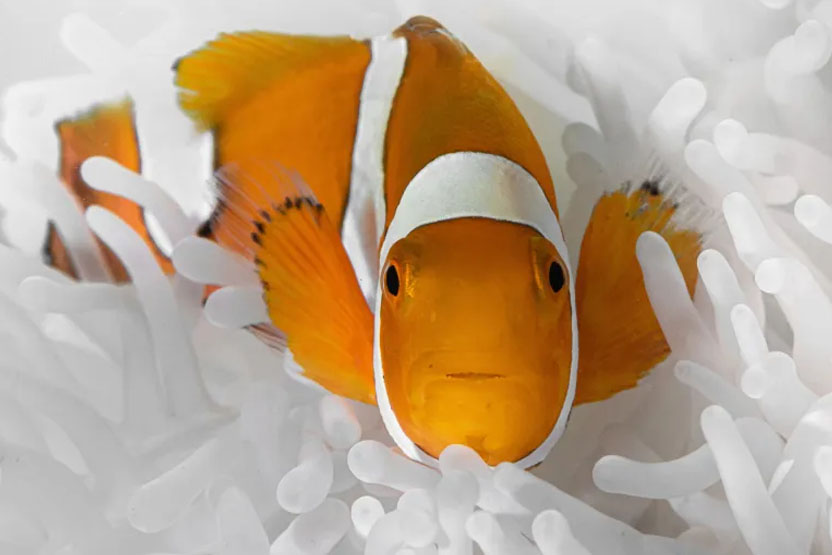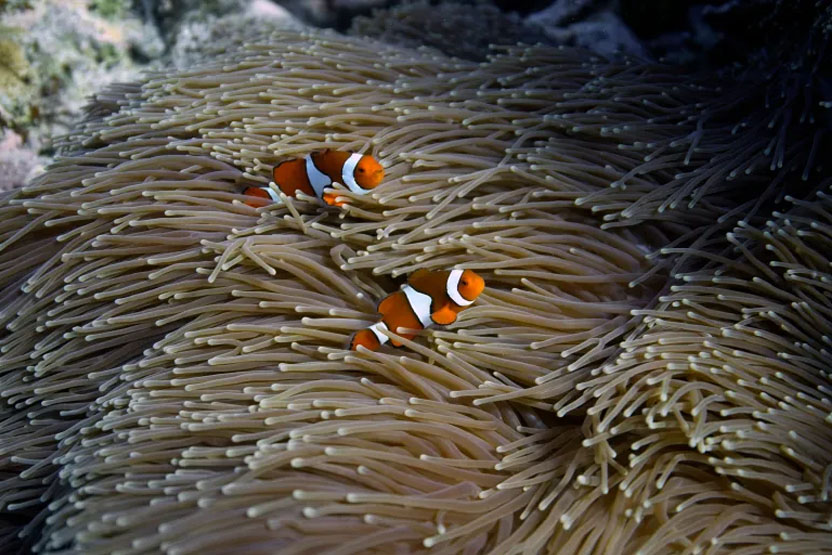A new study has shown that clownfish shrink their bodies to improve their chances of survival during marine heatwaves caused by climate change.

The ability to shrink boosts a clownfish’s chances of surviving heat stress by up to 78% (Associated Press)
Published in the journal Science Advances, the study was led by scientists from Newcastle University in England. They monitored 134 clownfish over the course of five months during a marine heatwave in 2023 and found that 100 of them had shrunk in size.
The lead researcher measured each fish’s length every month and recorded water temperature every four to six days. She observed that the fish grew shorter as temperatures rose—marking the first time a coral reef fish has been documented to shrink in response to environmental changes.
“I was absolutely amazed by the results,” said The lead researcher. “The clownfish demonstrated incredible growth plasticity! We’re seeing a strong ability to adapt to environmental demands.”
The clown fish is a victim of its beauty and climate change, which has increased the temperature of the oceans (Associated Press)
Adaptation and Resistance to Extinction
Clownfish range in size from 10 to 18 centimeters, live for 3 to 5 years, and sometimes up to 10 years. They feed on small invertebrates and typically shelter within sea anemones in tropical regions to escape predators.
This symbiotic relationship acts as a key defense mechanism for clownfish, which also have skin resistant to the stings and toxins of sea anemones.
The ability to shrink is especially significant now that marine heatwaves are becoming more frequent due to climate change and rising sea temperatures—conditions that pose serious threats to coral reefs and other marine life.
Førsteeg noted that very few animals possess the ability to shrink, citing marine iguanas, which can reabsorb bone material to reduce their size during times of environmental stress.
The study also found that clownfish that shrank at the same time as their mating partner had a better chance of survival. Researchers explained this by the power dynamics between the female—typically larger and more dominant—and the male.
Additionally, the shrinking observed was temporary. Clownfish showed the ability to recover and regrow once water temperatures decreased, indicating that living organisms may possess remarkable flexibility in adapting to a warming world, according to Førsteeg.
A Beloved Species at Risk
Clownfish gained worldwide fame following the 2003 release of the film Finding Nemo. The species was named for its vivid, multicolored patterns, which resemble a clown’s costume.
But these iconic fish now face the risk of extinction as global ocean temperatures continue to rise. Like corals, they bleach and die when exposed to excessive heat.
The nonprofit group Save Nemo, which is dedicated to protecting clownfish, reports that over one million clownfish are caught in ocean fishing nets each year, significantly reducing their populations. To help save them, scientists are now focusing on aquaculture breeding, taking advantage of the species’ ability to reproduce in captivity and then releasing them back into the wild.



Comment